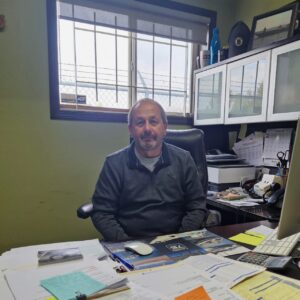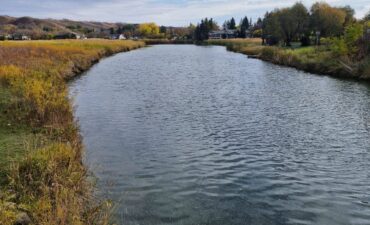Residents are aware of the importance of water quality in their lakes but a number of them demand more accessible information.
On Monday, Oct. 13, 2025, Rod Sedoriuk, who has been living in Fort Qu’Appelle since 2013, noticed a “foamy, slimy, kind of brown-ish” substance flowing down the river near the dam. He described it as something that would happen “every so often.”
“Everybody stays off the lake for two, three, four days,” said Sedoriuk, recalling what happens when people see blooms in the lake. Sedoriuk also said that he does not know where this phenomenon comes from.
Distinguished University Professor Dr. Peter Leavitt researches the Qu’Appelle River system’s water quality. He identified the substance as “bloom of cyanobacteria,” a rapid bacteria growth caused by warm weather.
Leavitt’s stance on whether the water quality has improved or deteriorated depends on the lake. While Last Mountain Lake has gotten “slightly better,” lakes like Lake Diefenbaker have “terribly gotten worse.”
Kevin Hollerbaum, the founder of Kevin’s Marine, a Boat Sales and Services Dealership in Fort Qu’Appelle, has also observed fluctuating water quality of the Qu’Appelle River system in his 34 years of business.

Staining on the boats is one of the more recent happenings Hollerbaum pointed out. He attributed it to alkaline calcium, a deposit caused by high levels of minerals.
“Let the people know,” said Hollerbaum, emphasizing that water bodies should be constantly tested and that information should be disclosed to the public.
Leavitt said that the water from the rivers has been tested every two weeks for 32 years.
The distribution of information was brought up to the Town Council at Fort Qu’Appelle.
Mayor Brian Strong and Chief Administrative Officer Don McLeod said that information is available and that “all [people] gotta do is ask.” McLeod also expressed that the lakes are “too shallow” to be pristine, attributing some of the circumstances in the lakes to environmental characteristics.
However, when asked if they would argue that Hollerbaum’s experience with boat staining is a common cycle in nature, McLeod said “I can’t argue that because I don’t know.”
“Spectacular job in misadvertising (…)” said Leavitt, referring specifically to one of the most recently finalized policies by the Water Security Agency. The Agricultural Water Stewardship Policy states that farmers are not to drain wetlands unless the water retention is at least at 40 per cent.
Leavitt said that allowing drainage will have “very damaging effects to water quality.”
“The average person probably isn’t aware,” said Leavitt, referring to the policy and the WSA statements. According to him, they are “misadvertising,” and “misrepresenting the numbers,” and that this is why residents do not know much about it.
Nonetheless, Leavitt also encouraged people to inform themselves and take action. “They can contact the MLAs or the premier (…)” said the expert biologist, referring to what residents can do about a still unimplemented policy.
When asked about how they spread vital information, the Water Security Agency said they do so by “issuing news releases” and a “mix of social and digital marketing.”
The WSA identified themselves as responsible for most of the province’s water responsibilities.
When asked about the demand for information from the residents and Professor Leavitt, the agency said that they are “always working to improve,” but did not specify how.















